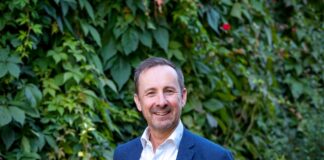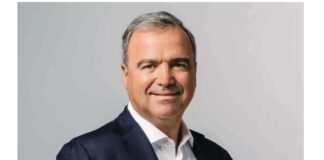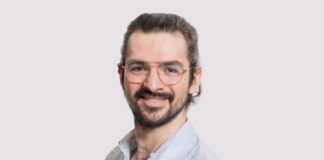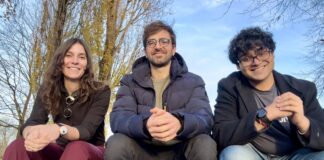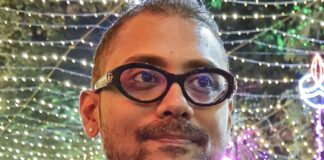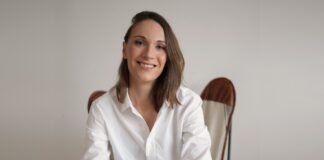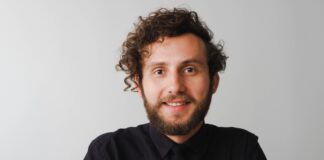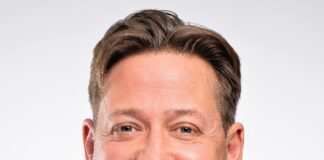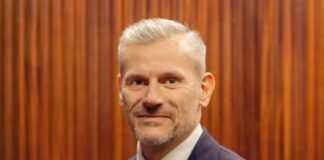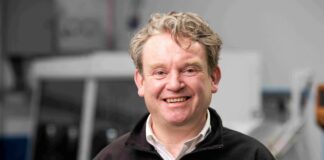Circu Li-ion helps to upcycle already used batteries through an automated process.
Please introduce yourself and your startup Circu Li-ion to our readers!
My name is Dr. Xavier Kohll. I am the CTO of Circu Li-ion – a Luxembourgish company which I co-founded with Antoine Welter (CEO) in 2021. Our startup helps service providers in the mobility sector as well as recycling companies to upcycle already used batteries from electric vehicles through an automated process. We are currently focusing on micromobility companies that produce e-bikes or e-scooters, as the battery packs used in these vehicles usually consist of lithium-ion cells. We have developed a Machine-as-a-Service solution which automatically analyzes each of these cells and processes those still usable for new battery packs and/or other electricity storage solutions. With our technology, our customers save valuable resources, lower their operational costs for new batteries and simultaneously help to reduce waste as well.
How did you get the idea of Circu Li-ion?
Before founding Circu Li-ion, I had always aspired to become an entrepreneur who could have a positive impact on society. In other words, I was and still am driven by the vision to change the world in a positive and sustainable manner through innovative technological solutions. My co-founder Antoine shares the same vision. He had already been active in the startup scene in Europe and Africa for a couple of years when we started to regularly exchange thoughts about various business ideas and sustainable technologies in early 2021. During these numerous conversations, Antoine told me about industries he had analyzed and where he saw particularly large opportunities to save CO2 emissions. Amongst them, he had identified the need for a more efficient way of recycling, and potentially upcycling, batteries used within the micromobility sector. This was the starting point for Circu Li-ion.
Why did you decide to start with Circu Li-ion?
With my background as a process and chemical engineer and Antoine’s business experience, we immediately had a complementary basis for addressing the identified problem in depth. As we began focusing our discussions on the fact that most batteries from electric vehicles are not adequately reprocessed and recycled after their ‘first life’, we saw potential for a novel solution which could help extend the life cycle of lithium-ion cells from e-bike and e-scooter battery packs. We conducted more market research and realized that there was indeed no contemporary, innovative solution to this problem until now. For me, this provided the perfect opportunity to seriously consider starting a business together. By offering a new technology that provides a solution to a real problem in the e-mobility and recycling sectors, I could actually begin to make a positive impact on our world. The decision to found Circu Li-ion together followed relatively quickly.
What is the vision behind Circu Li-Ion?
As our economy increasingly shifts from fossil fuels and combustion engines to electric alternatives, the need for batteries continues to grow on a worldwide scale. However, the supply of resources for battery manufacturing is limited. This is particularly true for lithium, which is essential for electromobility drives. Additionally, a lot of energy is required to produce new battery cells. Faced with this problem, we developed the vision for Circu Li-ion to maximize the life cycle of each lithium-ion battery cell to effectively help fighting the global climate crisis. We want to help ensure that battery cells, which could still be used, are given a ‘second life’. Our goal is to preserve valuable raw materials for as long as possible and to lower CO2 emissions with our technological solution.
How difficult was the start and which challenges did you have to overcome so far?
At the beginning, the biggest challenge was to decide which technological concept we would ultimately use to tackle the problem we had identified. We had to think carefully about what kind of initial prototype we wanted to build as our solution. To make our idea a reality, we had to assemble a skilled technical team and recruit the right talent early on. We managed to accomplish this task and have since been able to develop our Machine-as-a-Service solution, which consists of hardware and software.
To fund our launch, we raised a seven-figure pre-seed funding round from business angels. We also received great support from the government of the Grand-Duchy of Luxembourg – our home country, where we successfully participated in the Fit4Start program of the Ministry of Economy. Moreover, we were also selected for the Shell Start-Up Engine accelerator program, which helped us to develop our company and go-to-market strategy even faster.
Who is your target audience?
Our current target customers are micromobility service providers who want to up- and recycle used batteries on a large scale as well as recycling companies who acquire lithium-ion cells in substantial quantities. In the long term, we plan to serve the entire so-called ‘second life market’ for battery cells of both electric vehicles and appliances. Eventually, we also want to offer new batteries and storage solutions from CO2 neutral cells.
What is the USP of your startup?
Circu Li-ion offers a fully automated process to individually extract battery cells from used battery packs, diagnose each cell and separate them for reuse or material-based recycling. The biggest advantage of our solution is that lithium-ion batteries are no longer simply sent for recycling in their entirety after their primary use, which commonly leads to the loss of most of the raw materials as only a small percentage of various recyclables such as metals are returned to the economic cycle
With the help of our service, each individual battery cell can be reused in various storage solutions until it finally reaches the end of its lifecyle. As a result, we help our customers save valuable resources as well as operational costs for otherwise newly purchased batteries. Companies in the waste and recycling industry can also use our technology to meet increasingly stringent recycling quotas. Overall, our service offers an important contribution to the increasing electrification of the global economy, by prioritizing sustainability and lowering CO2 emissions while ensuring cost-effectiveness as well.
Can you describe your typical workday?
I usually do some yoga in the morning after I get up. My workday starts at 9 AM at the latest, when our tech team holds its daily Scrum meeting. In my role as CTO, I am responsible for all the different aspects of our technology. Accordingly, I usually spend the majority of my day working with the different engineering teams, trying to efficiently drive our research and development forward. Finally, I end my workday by answering emails.
Where do you see yourself and your startup Circu Li-ion in five years?
The market for electromobility has already reached a considerable size and will continue to grow and gain in importance in the future. We intend to fully serve the sub-segment of micromobility – from e-bikes to e-scooters – in the coming years and then also focus on the electric car sector. In parallel, we are already exploring the market for electrical appliances, such as power tools, which also use battery cells that can be upcycled. Our team currently consists of 21 people, most of whom are engineers with solid backgrounds in mechanical, software and process engineering. In addition to our headquarters in Luxembourg, we have a production site in Karlsruhe and are currently building a team in Berlin. We want to develop into an international technology company in the next few years.
What 3 tips would you give to founders?
“Have honest and difficult conversations early”: It is important to address difficult topics as early as possible in order to avoid potential future obstacles.
“Capitalize on your advantages”: You need to know your own strengths and weaknesses in order to act with maximum speed and confidence when launching a startup. Everyone has ideas, but it is the implementation that counts. Therefore, as a founder, you need to know exactly what you are good at and hand over the activities that may not suit you to others.
“Startups are like a rollercoaster”: You should try to learn from every moment – the good and the more challenging ones – together with your team.
Thank you Dr. Xavier Kohll for the Interview
Statements of the author and the interviewee do not necessarily represent the editors and the publisher opinion again.


